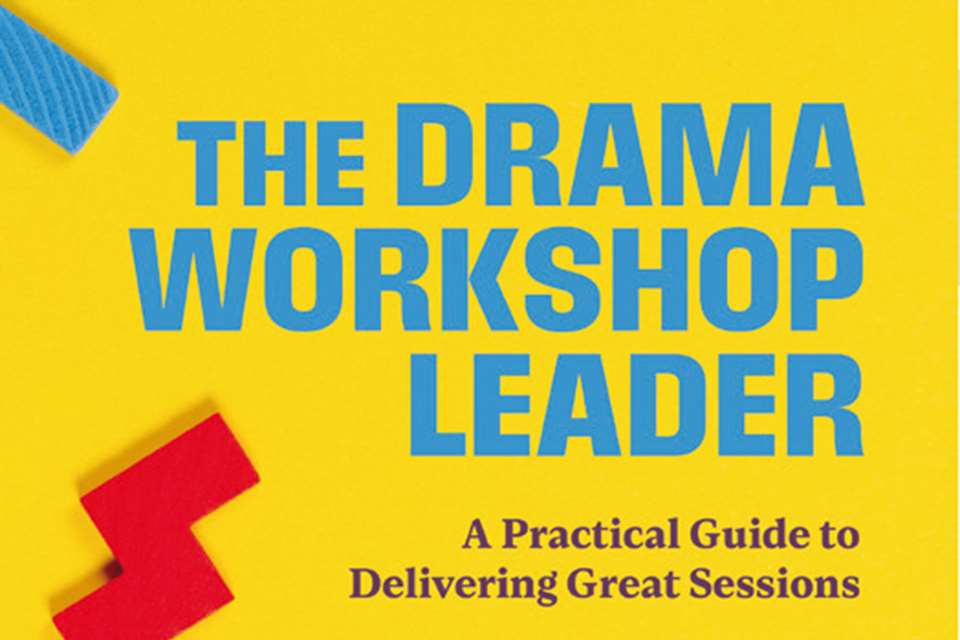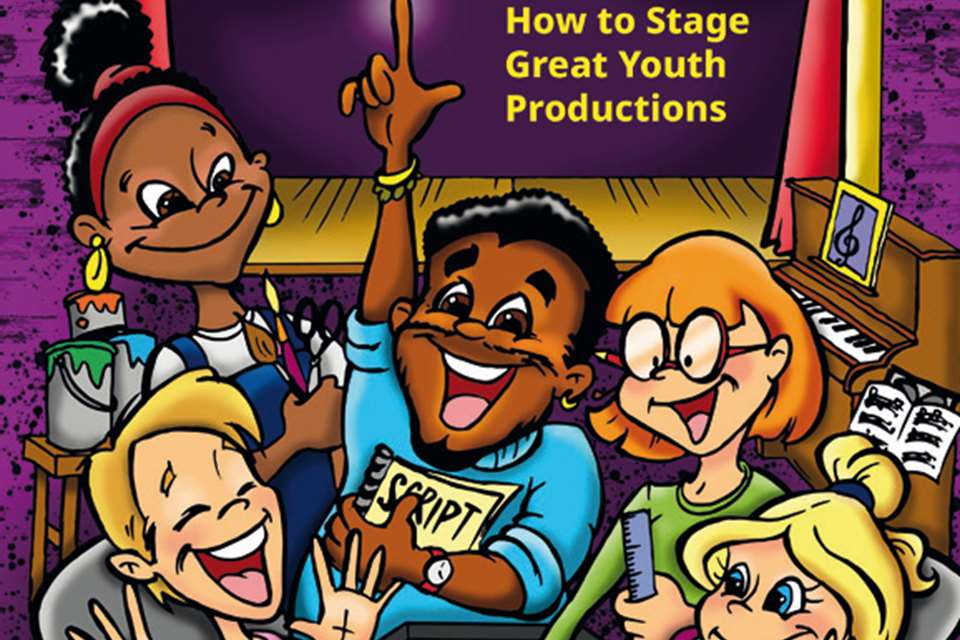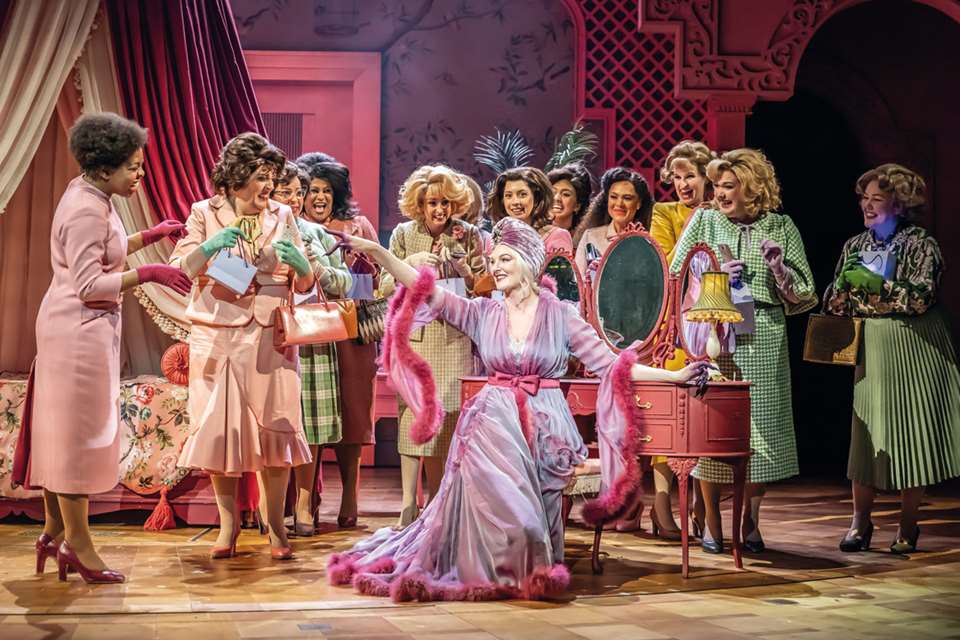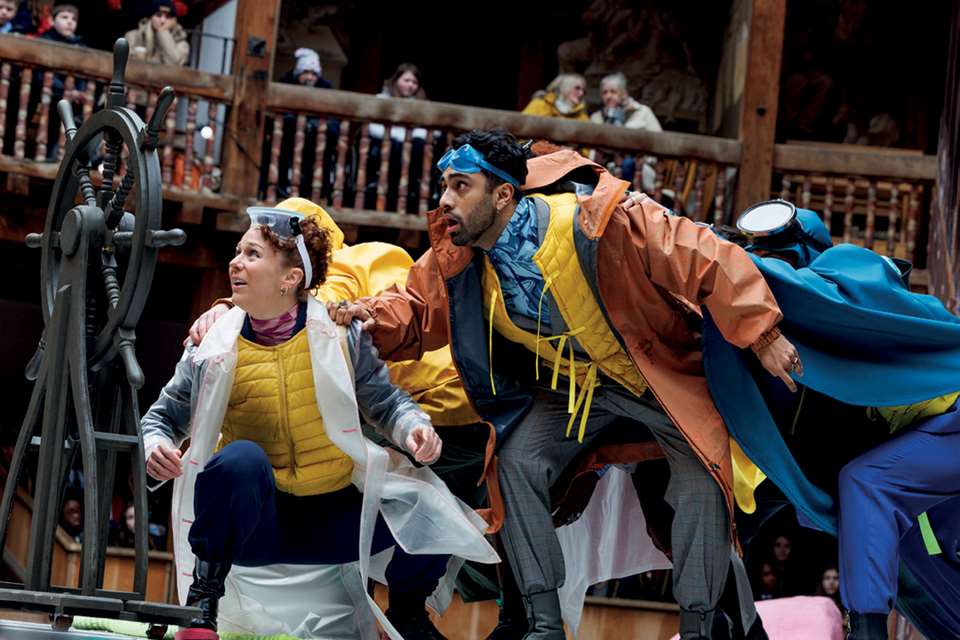Standing at the Sky's Edge: Chris Bush on playwriting
Hattie Fisk
Thursday, February 1, 2024
A multi-cultural musical about a council estate in Sheffield isn't the usual selection for a West End transfer, but that is exactly what Standing at the Sky's Edge has done. Hattie Fisk spoke to writer Chris Bush to find out why it struck a chord with audience members across the country.
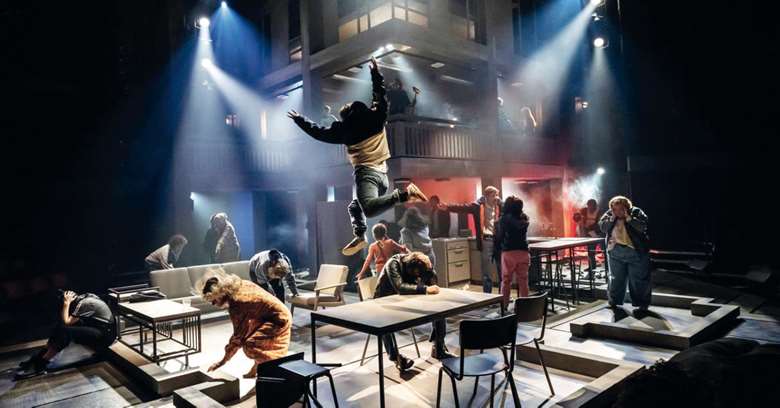
John Persson
When you think of ‘Northern’ drama, what springs to mind? As Chris Bush, writer of new musical Standing at the Sky's Edge puts it, usually this is can evoke one type of story: something that is very white and monocultural.
In her new production, Bush was determined to subvert the norm. ‘I wanted to do something far more kaleidoscopic, to show the side of the multifaceted sides of the city that people might be less aware of, and also what Sheffield meant to me,’ she says.
I am speaking to Bush ahead of a rehearsal where they will be tweaking the multi-award winning show for the West End transfer, following sold-out runs at the National Theatre and Sheffield Theatres. Originally written as a love letter to Sheffield, the production charts the hopes and dreams of three generations over the course of six tumultuous decades, as they navigate universal themes of love, loss and survival.
With songs from the Sheffield-based singer-songwriter Richard Hawley, it is not hard to see why the response to the production has been outstanding. The message of the show is about the power of community, and getting to the core of what we all call home. The show won an Olivier Award for Best New Musical, a UK Theatre Award for Best Musical Production, the South Bank Sky Arts Award and more.
Authenticity
Showing different stories throughout the city, the context of the play forces Bush to write dialogue for a variety of characters – some of which have very different lived experiences from her own. ‘There is a fair amount of me in Poppy, and again the Harry and Rose story isn't that far from my family history. But trying to write about an immigrant and refugee experience was a real challenge.’ When discussing the validity of writing this story, Bush says: ‘I come down on the side saying it is better to have representation and diversity within a company rather than only writing white characters as a white writer because that is the only thing I can portray honestly.’ She caviats this comment by adding that in some scenarios, stories should only be told by those who have experienced it, especially stories of struggle. However, in this production Bush pushed through, did lots of research and spoke to people who would know more about the immigrant experience. When it came to the cast, she ensured that the actors had an input in adapting the script to ensure the dialogue was genuine, honing down the stories to create further authenticity with every re-draft. Collectively, the company found their feet together. ‘You really have to be prepared to listen and not be too precious about your work,’ says Bush when discussing this process.
The message of the show
The success of the show comes from its universal themes, argues Bush. There is something about the central characters being working class, yet not purely being on stage for comic relief (as is sadly often the case with shows on the West End) meaning that there is more substance and weight to the musical's message. The production takes pride in it representation, not resorting to cheap stereotypes catering to the upper middle class audience members. It gives Northerners and working class characters dignity and nuance, making it a strong musical for students who yearn to see elements of themselves reflected back to them on the stage.
Bush has a number of thoughts on the current theatre system being capital-centric – something that we discuss regularly in D&T in regard to education opportunities. We share a sigh when the topic of funding comes into play, agreeing blankly that investment should not be down to one-off philanthropic donations but come from government, which would in turn diversify the stories on offer.
Advice for future playwrights
Turning the conversation towards productive advice for students who find Standing at the Sky's Edge inspiring, Bush offers some words of wisdom:
- Send scripts into competitions, and know that when you do that someone somewhere is reading it. ‘It was hard 12 years ago when nobody was reaching out with notes, but now I meet people that read scripts from back then and enjoyed them! Just remember that someone somewhere is receiving it,’ says Bush.
- Be kind. People in the industry will remember the positive and negative things you do.
- Find the thing you can do to pay your rent ‘that won't drive you insane’ while you progress. ‘I worked in front of house for theatres and box offices, and then I worked as a tour guide around York. Find a thing you can do that isn't mentally taxing so you can switch your brain on to write when you get home.’



